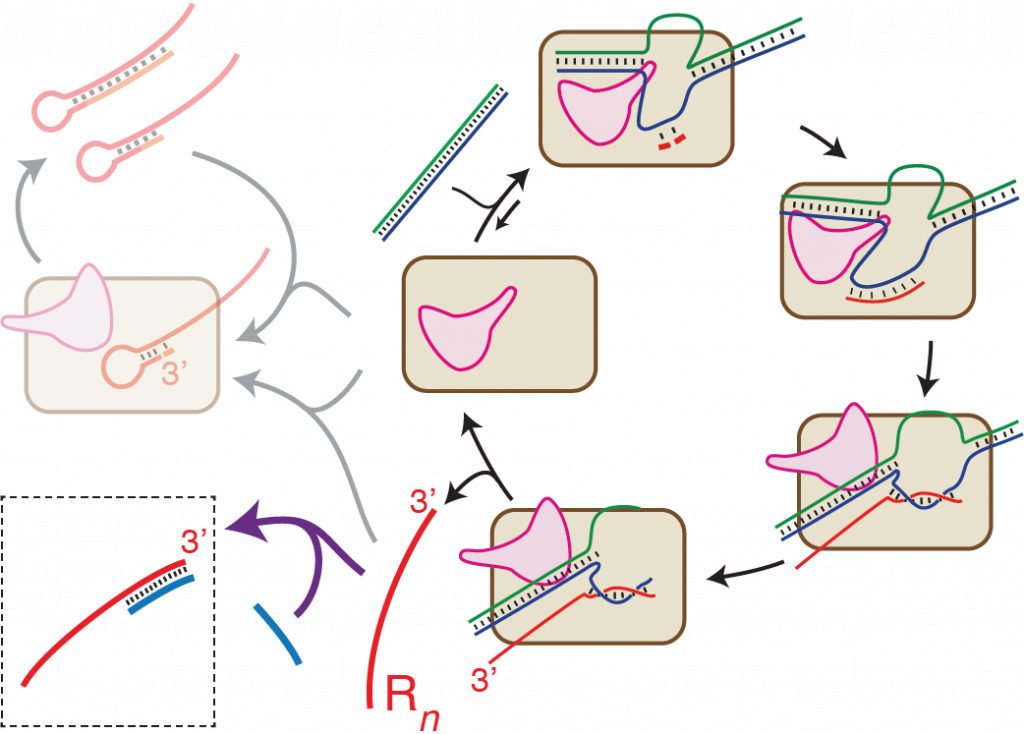Efficient inhibition of RNA self-primed extension by addition of competing 3’-capture DNA – improved RNA synthesis by T7 RNA polymerase
Yasaman Gholamalipour, William C. Johnson, & Craig T. Martin, Nucl Acids Res, 47, e118 (7 pages). 2019

In vitro synthesized RNA is used widely in studies of RNA biology, biotechnology and RNA therapeutics. However, in vitro synthesized RNA often contains impurities, such as RNAs with lengths shorter and longer than the expected runoff RNA. We have recently confirmed that longer RNA products are formed predominantly via cisself-primed extension, in which released runoff RNA folds back on itself to prime its own RNA-templated extension. In the current work, we demonstrate that addition of a DNA oligonucleotide (capture DNA) that is complementary to the 3’ end of the expected runoff RNA effectively prevents self-primed extension, even under conditions commonly used for high RNA yields. Moreover, the presence of this competing capture DNA during “high yield” transcription, leads to an increase in the yield of expected runoff RNA by suppressing the formation of undesired longer RNA byproducts.
PMID: 31392994 PMCID: 6821179 DOI: 10.1093/nar/gkz700